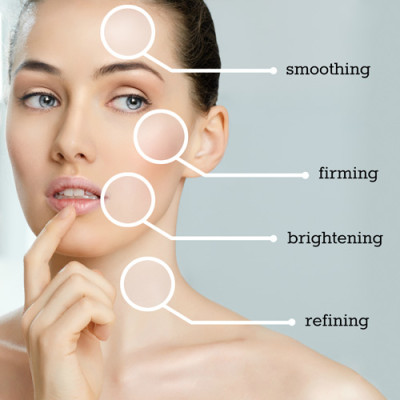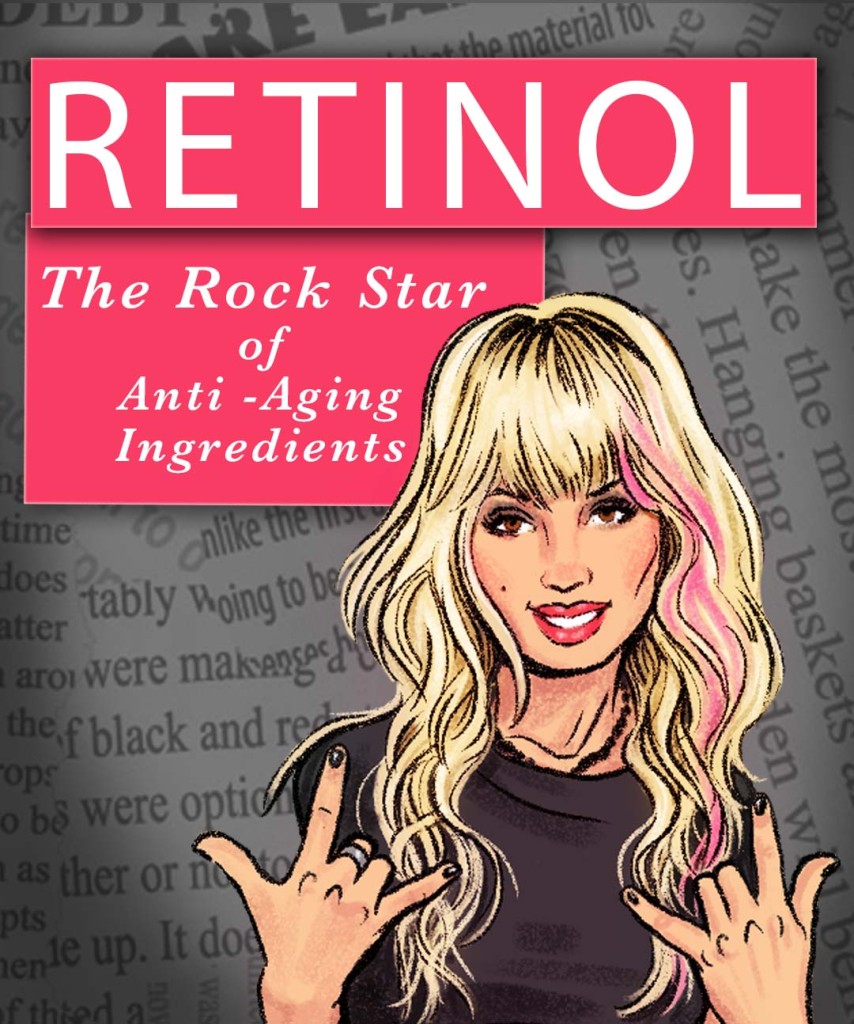
When it comes to reversing the signs of skin ageing, Retinol is hands down the industry’s gold standard ingredient. Hailed by beauty buffs and gurus alike as the ‘wonder’ ingredient, they all state that retinol should be the single most important ingredient in your anti-ageing regime.
So how does the miracle worker boost skin?
Well, enzymes in the body covert retinol to retinoid acid, an active form of vitamin A. This increases cell turnover, stimulates collagen and elastin production. Thus it is appropriate for treating everything from pigmentation, cystic acne and wrinkles. There is also strong research that it clarifies and evens skin tone.
It has the power to help accelerate skin renewal and reduce the appearance of wrinkles, fine lines and age spots for firmer, smoother and more evenly-toned skin. It can also help mitigate the effects of environmental stressors.
Should you avoid applying retinoids during the day?
But what many people don’t know about Retinol is that it is a highly-reactive molecule, meaning it can break down – and lose its potency – as soon as it is exposed to sunlight or air. This is why most retinol products are held in opaque packaging. More importantly, as retinol is prone to increasing photosensitivity within the skin so you should always use a high, broad spectrum sunscreen when using this product.
Is retinol suitable for all skin types?
While retinol is suitable for everyone, different strengths are appropriate for different skin types. Retinol can by damaging if your skin is sensitive, enhancing inflammation and causing eczema, rosacea and peeling. Retinol can be quite drying, so it is recommended for those with dry & dehydrated to seal the product in with a moisturiser at the very least. You should have a consultation with a specialist in order to find out which product and strength will be suitable for you. At Medcare, our aesthetic doctor can advise you.

Should you only use retinol once a week?
To start with yes. Retinol causes redness, dryness and even flaking – however this can easily be avoided or minimised by gradually introducing the ingredient into your skincare regime and building a tolerance to the ingredient. Night-time only, apply a pea-sized amount of retinol to clean and dry skin, avoiding the eye area. For optimal results, wait at least 30 minutes before applying other skincare products. Limit initial use to once or twice a week, gradually increasing frequency as tolerated.
Does retinol make the skin thinner?
No. Retinol actually thickens the skin, increasing cell turnover and collagen production for thicker, more youthful skin.
Is it best to start using retinol in your 20s?
While there is no set time to use retinol, most dermatologists advise introducing the product in your mid-twenties, particularly if you suffer from breakouts or pigmentation. It is suggested that one uses retinol for 3 months, then takes a three month break. This is due to research that suggests cell turnover is no longer increased after 3 months of retinol usage. In this way, you can continuously cycle your skin into repairing itself and stave off the appearance of fin lines accompanied with ageing.

Before and after a course of retinol serum.
So is retinol a miracle ingredient?
Enzymes in the body covert retinol to retinoid acid, an active form of vitamin A. This increases cell turnover, stimulates collagen and elastin production. Thus it is appropriate for treating everything from pigmentation, cystic acne and wrinkles. There is also strong research that it clarifies and evens skin tone. In many ways it is considered the miracle ingredient.
However, it is important to note that, if used improperly, retinol can compromise the epidermal barrier. This is why it is important to employ the advice of a specialist before embarking on suing such a potent ingredient.
Are Retinol, Retin-A & Retinoid are the same thing?
No. Retin-A is a prescription level retinoid that is stronger in nature, used for acne as well as aging.
Retinol is the over-the-counter version of Retin-A, which becomes the active Retinoic Acid when it hits the skin.
Retinoids are the family that Retin-A, Retinol & Retinoic Acid belong to. It is a chemical compound of Vitamin A.

Can Retinol can be used with acids?
No. Benzoyl peroxide, AHA’s & BHA’s are known to reduce productivity within retinoids, so do not mix them. These will also compromise the skin, as both acids and retinol can cause irritation.
At Medcare we offer a range of medical greade skin products, including some with levels of retinol you cannot buy over the counter. Contact Medcare for your FREE skin consultation and find out what will suit your skin type. Call 966 860 258 or email doctors@medcarespain.com

